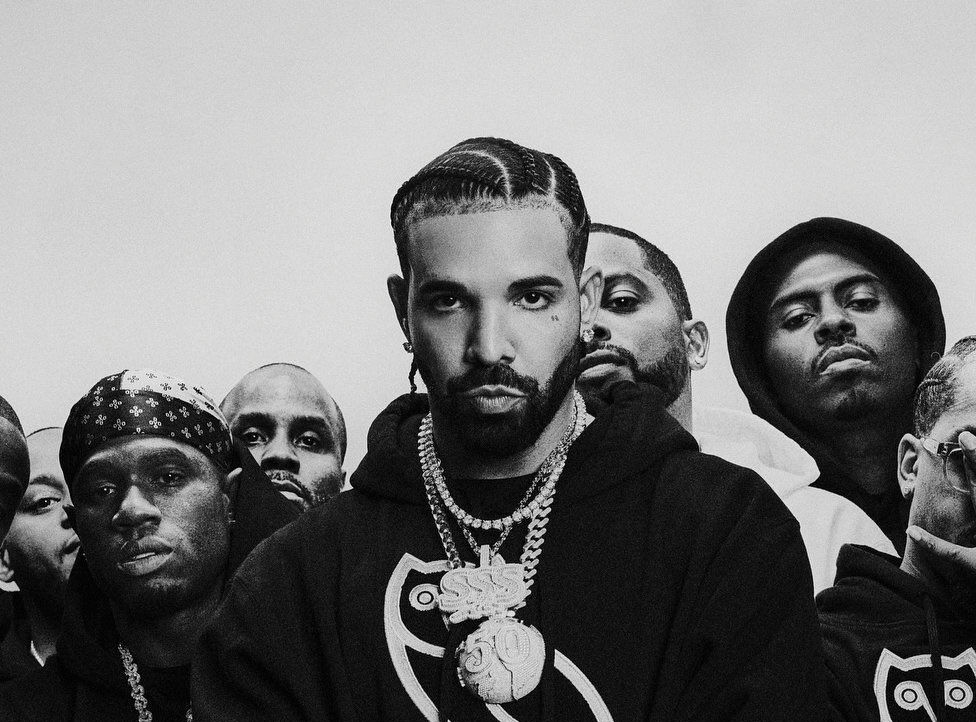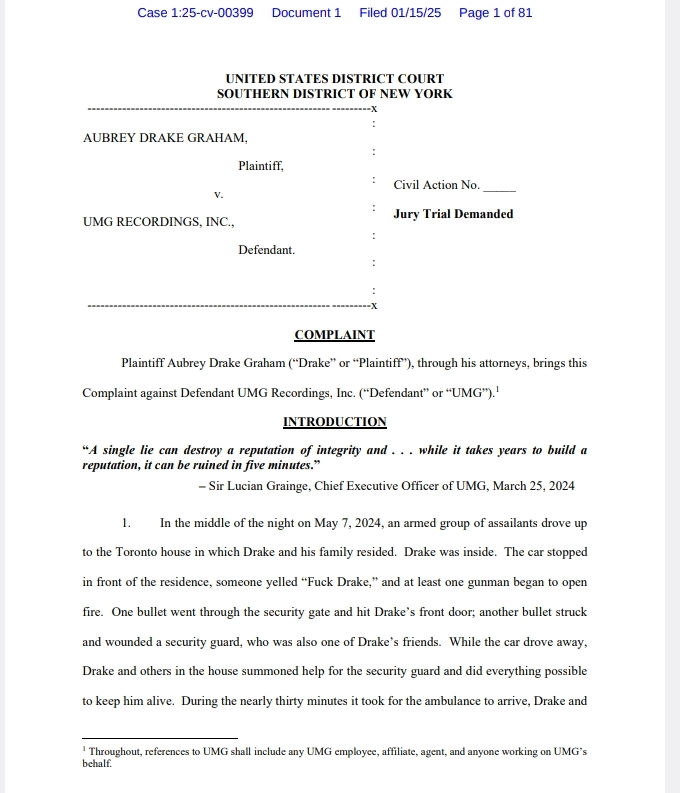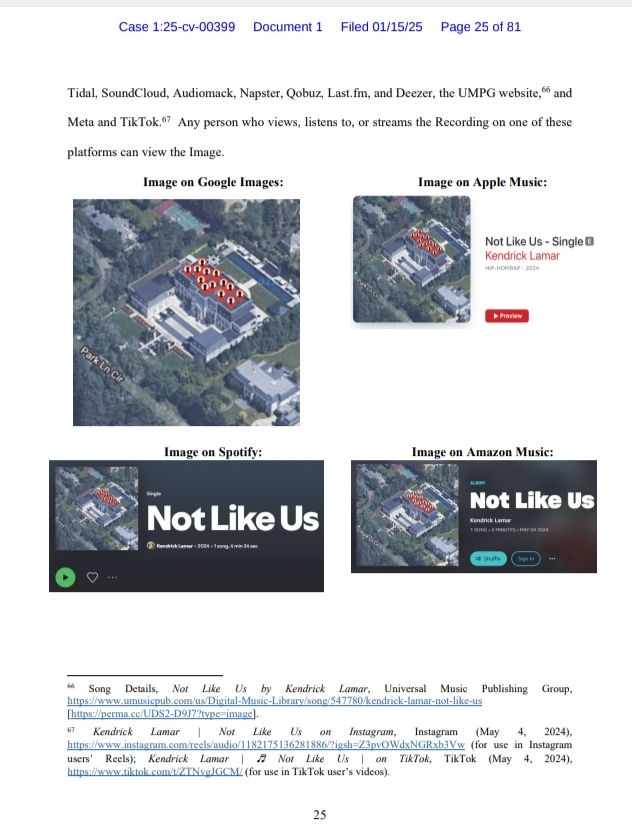Drake vs. UMG: A Legal Battle Over Defamation, Harassment, and Industry Corruption
- M.R Mishra

- Mar 18, 2025
- 3 min read
Aubrey “Drake” Graham has filed a defamation lawsuit against Universal Music Group (UMG), accusing the label of knowingly promoting false and damaging allegations against him.

The case revolves around Kendrick Lamar’s diss track Not Like Us, which explicitly accuses Drake of pedophilia and includes imagery marking his Toronto home as a predator’s residence.

Drake argues that UMG not only published and profited from these statements but also engaged in deceptive streaming practices and encouraged real-world harassment.
At its core, this lawsuit raises a fundamental question: Can a record label be held liable for spreading harmful, false information under the guise of artistic expression?
Defamation: The Heart of the Case
Drake’s defamation claim hinges on proving that UMG acted with actual malice that is, knowing the allegations were false or recklessly disregarding the truth.
His legal team points to several factors:
No evidence supports the claims: Drake has never been investigated or charged with any crime involving minors.
UMG had direct knowledge of his background:
As his label for over a decade, UMG would have vetted him during contract negotiations.
Drake warned UMG: He publicly denied the allegations, released a rebuttal track (The Heart Pt. 6), and privately informed UMG of their falsity.
Despite this, UMG allegedly continued to promote Not Like Us, securing licensing deals and even inflating the track’s success through artificial streaming boosts.
If Drake can prove UMG executives were aware of the falsehoods but proceeded anyway, the label could face significant legal exposure.
Harassment and the Real-World Fallout
Beyond the damage to his reputation, Drake alleges UMG’s actions directly led to harassment and physical threats. In the days following the track’s release, his Toronto home was shot at, and trespassers repeatedly attempted to gain access to his property.
His legal team argues that by distributing an album cover depicting his home in a criminal context and licensing the song for high-profile performances, UMG contributed to a hostile environment that endangered him.
New York’s harassment laws prohibit conduct intended to “alarm or seriously annoy” a person, and Drake’s legal team may argue that UMG’s ongoing promotion of the song, even after violent incidents occurred, meets this standard.

However, proving intent that UMG wanted to incite harm may be challenging.
Streaming Fraud and Industry Implications
The lawsuit also accuses UMG of deceptive business practices, particularly manipulating streaming numbers and engaging in payola. Drake claims the label paid third parties to use bots that artificially inflated Not Like Us’s Spotify plays, making it appear more popular than it was.
This not only skewed public perception but also affected the way streaming revenue was distributed , potentially diverting earnings away from other artists, including Drake himself.
Payola, or the practice of secretly bribing radio stations to prioritize a song, has long been illegal under FCC regulations. If Drake’s claims are proven, the case could reignite scrutiny over how major labels game the streaming system, with possible regulatory consequences for the industry.
UMG’s Defense and the Free Speech Question
UMG will likely argue that Not Like Us is protected speech under the First Amendment. Courts have historically given musicians broad leeway when it comes to diss tracks, considering them part of the genre’s tradition of exaggeration and metaphor.
UMG may also claim that Drake, as a public figure, faces a higher burden to prove defamation and that no “reasonable listener” would take the song’s lyrics as literal fact.
However, Drake’s team will counter that the song goes beyond artistic hyperbole , it presents factual claims that can be proven false. If the court finds that Not Like Us makes explicit, unverified criminal accusations against Drake, UMG’s First Amendment defense may weaken.

Why This Case Matters
This lawsuit isn’t just about a rap feud; it’s a test of corporate responsibility in the digital era. If Drake wins, it could set a precedent that:
Holds record labels accountable for knowingly distributing defamatory content.
Exposes streaming fraud and forces greater transparency in how music success is measured.
Challenges the limits of artistic freedom when it crosses into false accusations with real-world consequences.
For now, the case is in its early stages, but the outcome could send shockwaves through the music industry.
Labels have long hidden behind the idea that they merely distribute content, but if Drake succeeds, UMG and others may have to rethink their role in the narratives they amplify.







Comments